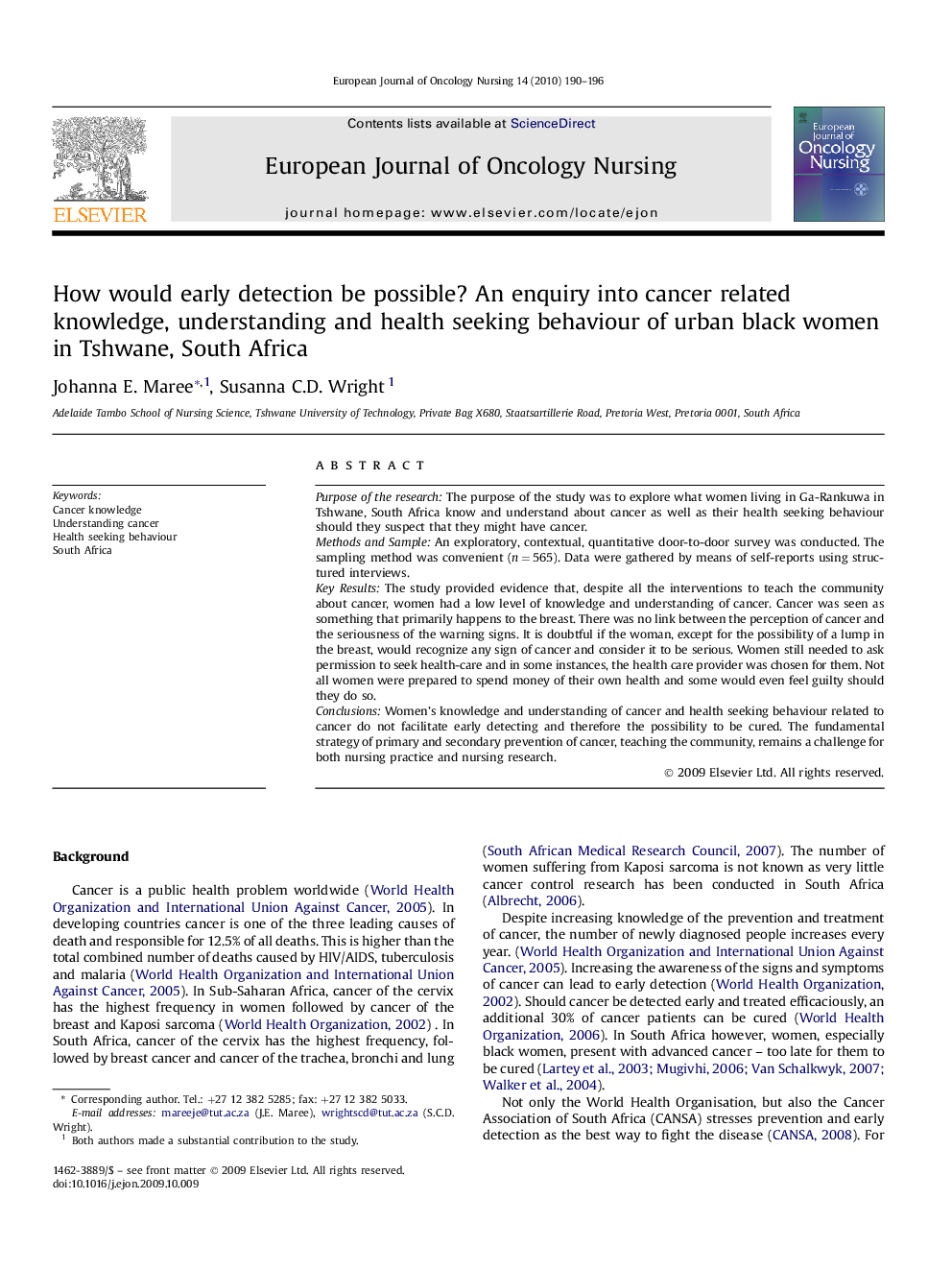| Article ID | Journal | Published Year | Pages | File Type |
|---|---|---|---|---|
| 2647783 | European Journal of Oncology Nursing | 2010 | 7 Pages |
Purpose of the researchThe purpose of the study was to explore what women living in Ga-Rankuwa in Tshwane, South Africa know and understand about cancer as well as their health seeking behaviour should they suspect that they might have cancer.Methods and SampleAn exploratory, contextual, quantitative door-to-door survey was conducted. The sampling method was convenient (n = 565). Data were gathered by means of self-reports using structured interviews.Key ResultsThe study provided evidence that, despite all the interventions to teach the community about cancer, women had a low level of knowledge and understanding of cancer. Cancer was seen as something that primarily happens to the breast. There was no link between the perception of cancer and the seriousness of the warning signs. It is doubtful if the woman, except for the possibility of a lump in the breast, would recognize any sign of cancer and consider it to be serious. Women still needed to ask permission to seek health-care and in some instances, the health care provider was chosen for them. Not all women were prepared to spend money of their own health and some would even feel guilty should they do so.ConclusionsWomen's knowledge and understanding of cancer and health seeking behaviour related to cancer do not facilitate early detecting and therefore the possibility to be cured. The fundamental strategy of primary and secondary prevention of cancer, teaching the community, remains a challenge for both nursing practice and nursing research.
